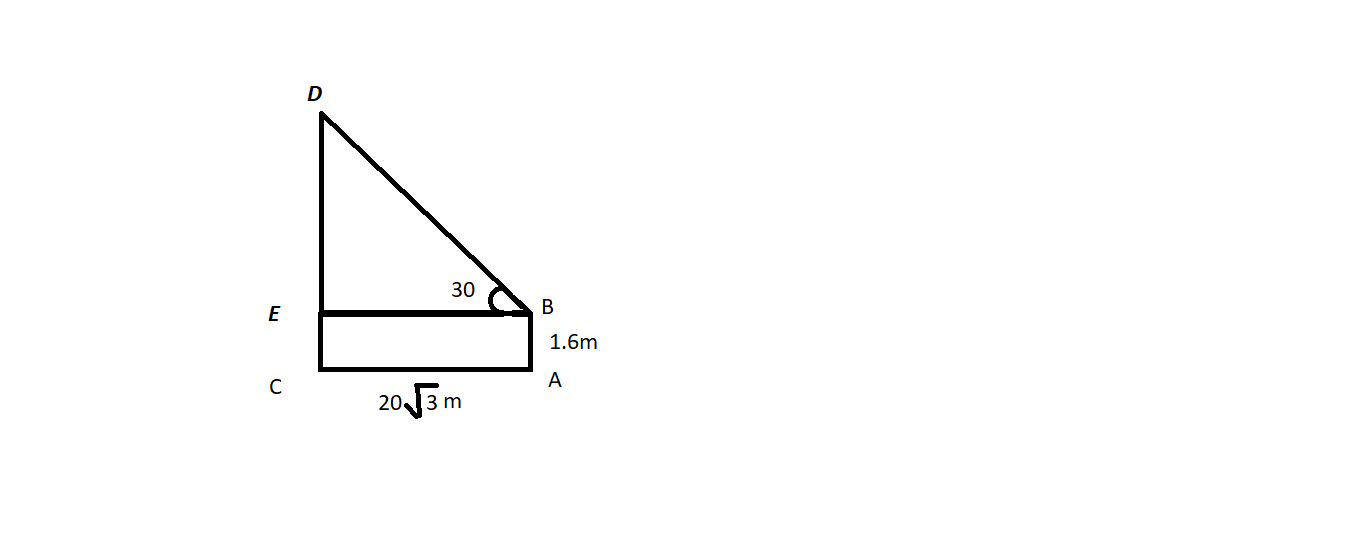Question
Question: An observer 1.6 m tall is \(20 \sqrt{3}\) m away from a tower. The angle of elevation from his eye t...
An observer 1.6 m tall is 203 m away from a tower. The angle of elevation from his eye to the top of the tower is 30°. The height of the tower is
A) 21.6 m
B) 23.2 m
C) 24.72 m
D) None of these
Solution
Use the trigonometric applications involving heights and distances. The distance between the man and the pole is given and the angle of elevation is given. A Trigonometric approach will be the best.
Complete step by step solution:

In the above given figure A,
Let AB be the observer and CD tower
Draw BE perpendicular to CD
This will represent the distance between the man’s eye and the point E on the pole
Then CE=AB=1.6m
Also,
BE=AC=203m
Using the trigonometric applications in the right angled triangle DEB
tanθ=BP
Where, θis the angle of inclination, P is perpendicular of the triangle and B is the base of the triangle.
Therefore, in triangle DEB
tanθ=BEDE
Now, we know that
tan300=31 and
It is given that
BE=203m
Putting the values in the above equation, we get,
31=203DE
Therefore,
DE=20m
Now,
Height of the tower, CD=DE+CE
CD=20+1.6
CD=21.6m
Therefore, the height of the tower is 21.6m.
Note: The key application of trigonometry is either to calculate the distance between two or more points or to calculate the height of the object or angle that any object subtends at the specified point without calculating the distance, height or angle actually.
